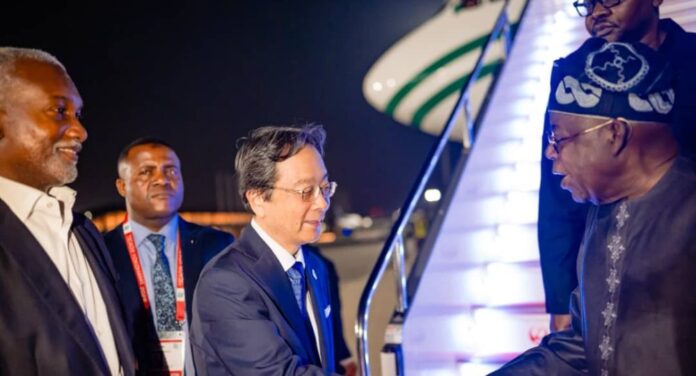Japan has opened its doors to African leaders for the Tokyo International Conference on African Development (TICAD), a three-day summit aimed at deepening economic ties and positioning Tokyo as a reliable partner for the continent amid mounting debt and shrinking Western aid.
The gathering, which began on Wednesday, drew prominent participants including Nigerian President Bola Tinubu, South Africa’s Cyril Ramaphosa, Kenyan President William Ruto, and United Nations Secretary General Antonio Guterres.
Discussions at TICAD are centred on Africa’s economic vulnerabilities from the continent’s ballooning debt profile to the impacts of conflict, climate change, and reduced aid inflows.
Ramaphosa’s office warned that worsening debt and liquidity challenges were undermining governments’ ability to provide safety nets for citizens.
Over the past decade, China has become Africa’s largest infrastructure partner, signing multibillion dollar deals under its Belt and Road Initiative.
However, new Chinese lending has slowed in recent years, leaving many African nations trapped in mounting repayment obligations to both Beijing and private creditors.
Western support, too, has waned, particularly following the dismantling of several U.S. development programmes under President Donald Trump.
For Japan, the conference presents an opportunity to expand its presence on the continent while promoting trade, technology, and sustainable development.
Japanese Prime Minister, Shigeru Ishiba, told reporters that Africa’s youthful population and vast natural resources represent opportunities for both sides.
“Rather than focusing on our own needs, we want to carefully identify the needs of our partners and earn their trust, thereby fulfilling our role as a nation,” Ishiba said.
Local media reported that Tokyo is considering new free-trade agreements, loan guarantees, and incentives to encourage Japanese companies to invest in Africa.
Business leaders in Japan, however, have cautioned that trust-building must remain central if Tokyo is to be seen as a credible alternative to China.
It was disclosed that Ishiba is expected to propose an “economic zone” linking Africa and the Indian Ocean region, alongside a pledge to train 30,000 artificial intelligence specialists over the next three years to boost industrial digitalisation and job creation across the continent.
Since its inception in 1993, TICAD has provided a platform for Africa and Japan to collaborate on shared priorities in trade, investment, and sustainable growth.
The ninth edition comes at a moment when African nations are searching for new partners to ease debt burdens and stimulate economic resilience.

